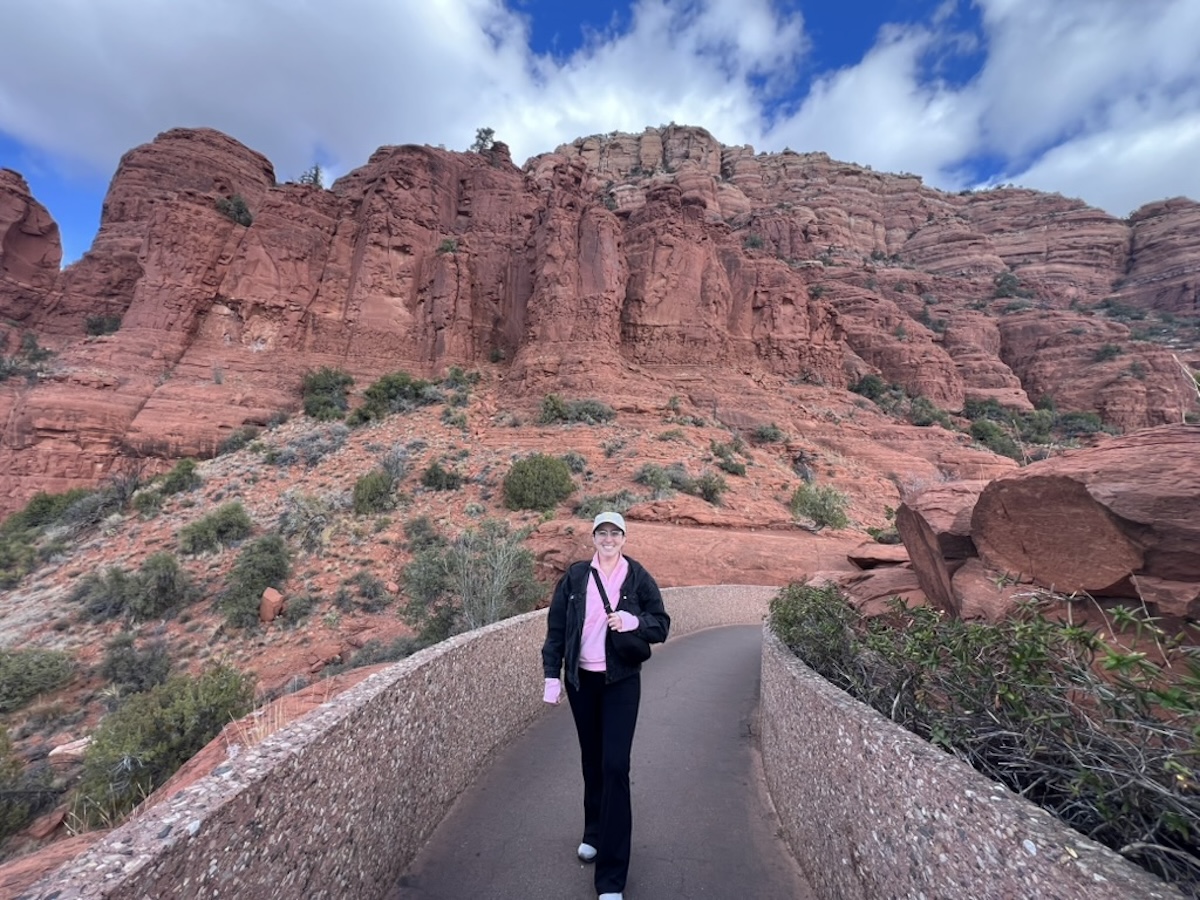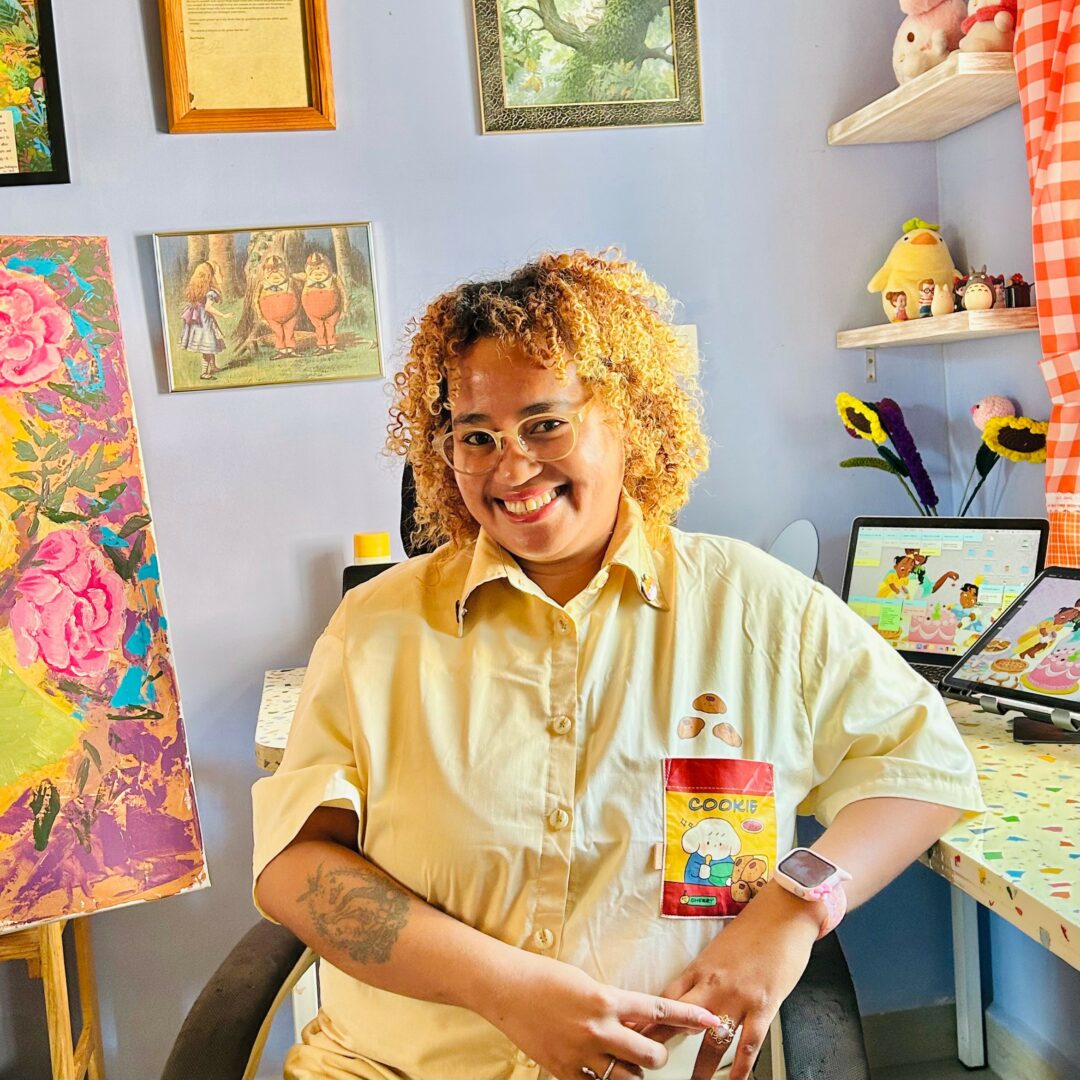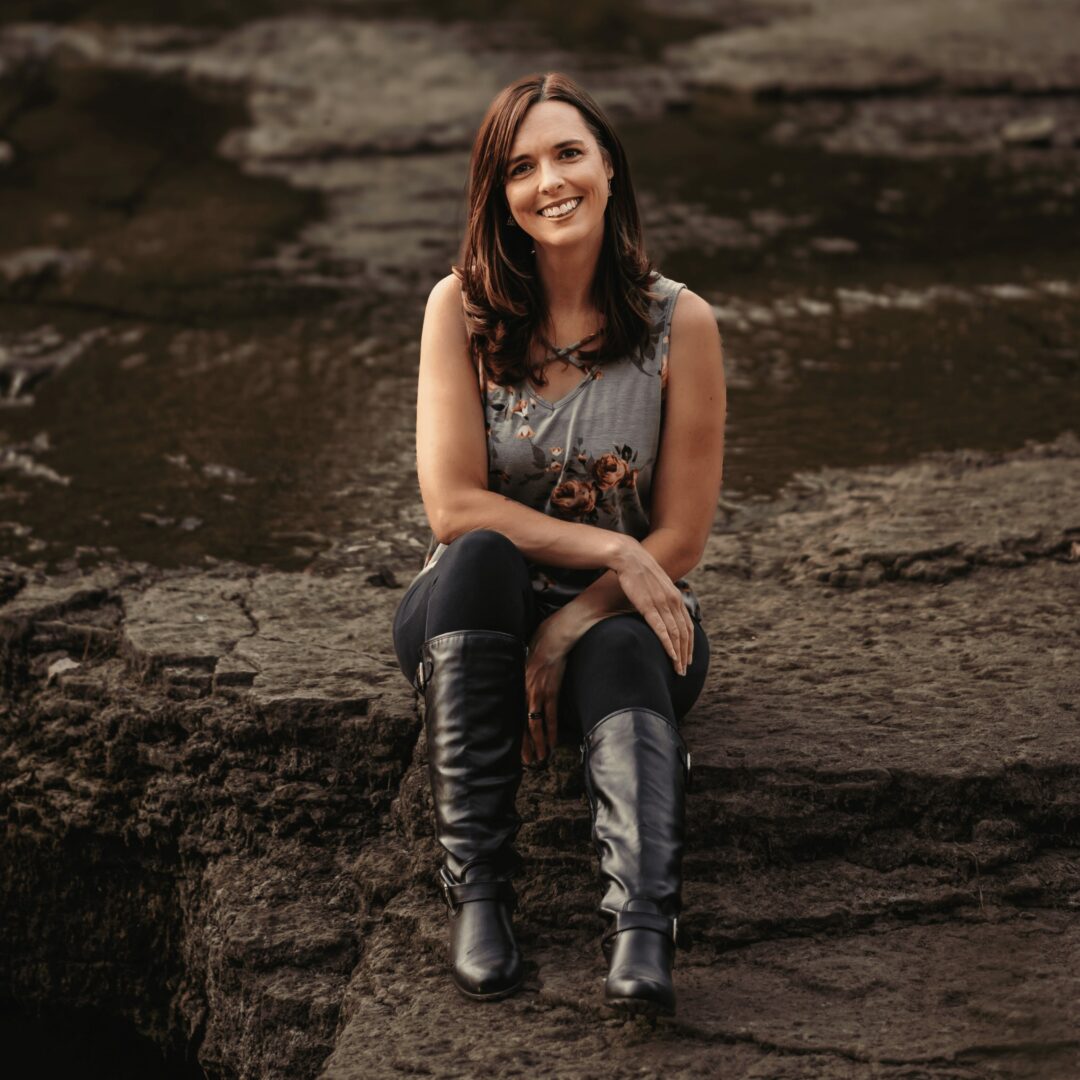We were lucky to catch up with Vanessa Weiner recently and have shared our conversation below.
Hi Vanessa, appreciate you sitting with us today to share your wisdom with our readers. So, let’s start with resilience – where do you get your resilience from?
The intervals between doctor visits grew until team by team I was discharged and declared cancer-free. But I wondered why I didn’t feel free from cancer. Curious by nature and a lover of learning, I had a deeply rooted belief that there was a better way to recover from cancer…I just had to find it.
Breast cancer has dominated my narrative for the past 5½ years. Amid 11 surgeries, surprising genetic discoveries, and new chronic illness diagnoses, one thing remains constant: the headache I woke up with after my double mastectomy which has never gone away. Is this what life looks like on the other side, I often wonder? Some days, it feels more daunting than the cancer treatment!
What has kept me going is the most amazingly patient and loving husband, my two beautiful adult children, and a small inner circle of family and friends all who listened, cried with me, never judged, held my hand through the darkness, and stayed by my side even when I reached official wet-blanket burden-status.
Though the external support is invaluable, I know that the healing has to come from inside. I can usually rely on a little voice inside on the darkest of days who reminds me that there has to be more than this. Sometimes I want to look the other way and pretend I didn’t hear her. Other days I feel brave enough to lean into the inquiry.
Now, I have been meditating since I was eight years old, and I love all things creative. Surprisingly, I hadn’t been consistent with either since my diagnosis. I would walk by the window bench where my meditation cushion lives in my art studio and I say to myself, “Yeah, I’m all set.” By avoiding what clearly needs attention, we all end up playing a game of whack-a-mole. You think you’ve got it, and all of a sudden it comes popping up someplace else – and usually at the worst time! That’s the toll cancer takes, which can also be a wake-up call and opportunity to come back to the cushion, back to the art table, back to center and to that inquiry, remembering that these strategies can hold us when our minds go to difficult places.
It was during one of those moments when I cracked open my old sketchbook. I picked up watercolor. I signed up for an art class and quickly, my creative endeavors became my meditation. I recognized the feeling of that flow state – that place where time stands still, all the things that have a grip on you seem to fade to the background while you’re fully present in the moment.
In that presence, I had access to an inner knowing. We all have it, but sometimes we just need to try a few different keys to unlock the door. That’s when I realized how much had been missing from my treatment. The medical team had cured the physical disease, but no one told me it might hit hard psychologically at some later date. So, I reconnected to my inner resilience through making art, practicing mindfulness, staying curious, leaning on my peeps, and also working with a great therapist.

Great, so let’s take a few minutes and cover your story. What should folks know about you and what you do?
I help women heal the emotional scars of cancer. Cancer is not just a physical disease. There is a psychological side to it as well and the heart and mind get very little attention throughout the course of treatment.
The American Psychological Association even states that “the post-treatment period is usually ignored, yet emotional recovery from the trauma of cancer treatment may take longer than the physical recovery.”
When I first read that statement, I felt so validated – like for the first time there were words that described my experience. Initially, I figured it must be a breast cancer thing. It is the most common type of cancer in women, and treatment can affect our sense of identity and self-worth. Unfortunately, I am learning that this is not the case, and continue to hear from women who have had other types of cancer who are also surprised by the lack of support beyond the physical intervention.
Once I realized I wasn’t alone in my experience, I made it my mission to address the psychological burden of cancer and share strategies, workshops and individual coaching for women to better navigate their new normal and get back to living. My ideal client is a women who has (had) cancer, loves a good creative outlet, and who relates to something missing in her cancer treatment journey.
Drawing upon my experience teaching mindfulness and emotional intelligence for the past 15 years, I developed a customized coaching approach using NeuroGraphica, Zentangle and other art-based mindfulness processes to work with women who have (had) cancer. I am excited to work with women who are curious about the healing power of creative expression and who are ready to do the self-inquiry work to get back to living.
It’s special because it’s a deeply personalized experience focused on the client’s needs and goals. It’s exciting that maybe there’s a way for future cancer survivors to know a different experience as they come through the other side of their physical treatment. And, it makes me want to get out of bed each morning to witness my clients’ a-ha moments, to listen for the signs of baby steps toward change, and to marvel at the beauty of women helping women in small group programs where they develop deep bonds, truly share their vulnerabilities and allow themselves to be seen.

Looking back, what do you think were the three qualities, skills, or areas of knowledge that were most impactful in your journey? What advice do you have for folks who are early in their journey in terms of how they can best develop or improve on these?
The most transformative tools for me were the practices I had learned that I knew I could always come back to—traditional meditation, journaling, and mindfulness-based art-making. Whether I returned when I felt ready or when the need became impossible to ignore, they were always there.
Equally meaningful were the bonds I formed with others who had also faced cancer. These connections opened the door to a shared understanding that I couldn’t have articulated before my diagnosis. They also helped to reduce the loneliness and bring a sense of belonging and acceptance to this part of my life.
In fact, right in the middle of my treatment, I had coffee with a friend of a friend who had also had the same surgery I did. We aren’t besties…we didn’t even have another coffee date. But just the idea of giving air to some of the parts of my story I have buried – perhaps unknowingly buried – felt like a huge weight lifted off my shoulders that I didn’t even really realize I was carrying. And then 4 of my closest friends all got breast cancer within a year of each other, and this is how A Mindful Line was born…
As for advice, I’d say:
1. Start before you’re ready: Consider that there will never be a “perfect” time to do this additional piece of the recovery, but you will not regret the clarity, empowerment and meaning-full life that is on the other side.
2. Do your research: There are many programs and types of professionals out there. Make sure you schedule a discovery call or join a free workshop to meet the person you’ll be working with. It has to be a good fit – someone who gets it and will put all their attention and focus on listening to your needs, holding safe space for your inquiry and offering accessible and workable strategies that are sustainable for the long-term.

Before we go, any advice you can share with people who are feeling overwhelmed?
When I’m overwhelmed, I try to remember to tune in and listen for that inner voice. Overwhelm is your body’s way of raising a red flag. It’s your body’s way of saying, “Something isn’t right.” Think of it like an alarm bell, calling you to pause and take action before things escalate.
I continue to build my own tool box of self-care strategies, and also give myself grace when I forget to use them…I’m not talking about the chocolate-and-extra-glass-of-wine strategies (though, I’m not gonna lie, I do love those things). Rather, the type of self-care that can help shift the sense of overwhelm is a proactive approach to maintaining your health and happiness, adjusting your mindset to give yourself permission to recognize your own needs, and then committing to make consistent efforts to prioritize yourself. We need to have these tools in the toolbox *before* the overwhelm strikes!
Contact Info:
- Website: https://www.AMindfulLine.com
- Instagram: @AMindfulLine
- Facebook: https://www.facebook.com/AMindfulLine.Connect.Create.Heal
- Linkedin: https://www.linkedin.com/in/vanessaweiner/
- Other: Pinterest: https://www.pinterest.com/AMindfulLine/


so if you or someone you know deserves recognition please let us know here.




